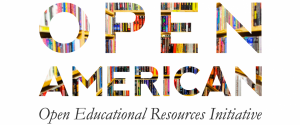Summary
MERLOT is a curated collection of free and open online teaching, learning, and faculty development services contributed and used by an international education community. The MERLOT project began in 1997, when the California State University Center for Distributed Learning developed and provided free access to MERLOT.
In 1998, a State Higher Education Executives Organization/American Productivity and Quality Center (SHEEO/APQC) benchmarking study on faculty development and instructional technology selected the CSU-CDL as one of six best practices centers in North America. Visitations to the CSU-CDL by higher education institutions participating in the benchmarking students resulted in interest in collaborating with the CSU on the MERLOT project. The University of Georgia System, Oklahoma State Regents for Higher Education, University of North Carolina System, and the California State University System created an informal consortium representing almost one hundred campuses serving over 900,000 students and over 47,000 faculty. SHEEO was the coordinator for the cooperative of the four state systems.
In 1999, the four systems recognized the significant benefits of a cooperative initiative to expand the MERLOT collections, conduct peer reviews of the digital learning materials, and add student learning assignments. Each system contributed $20,000 in cash to develop the MERLOT software and over $30,000 in in-kind support to advance the collaborative project. The CSU maintained its leadership of and responsibilities for the operation and improvement of processes and tools.
In January, 2000, the four systems sponsored 48 faculty from the disciplines of Biology, Physics, Business and Teacher Education (12 faculty from each of the four systems) to develop evaluation standards and peer review processes for on-line teaching-learning material. In April, 2000, other systems and institutions of higher education were invited to join the MERLOT cooperative. In July, 2000, twenty-three (23) systems and institutions of higher education had become Institutional Partners of MERLOT. Each Institutional Partner contributed $25,000 and in-kind support for eight faculty and a project director (part-time) to coordinate MERLOT activities. The CSU continued its leadership of and responsibilities for the operation and improvement of processes and tools.
